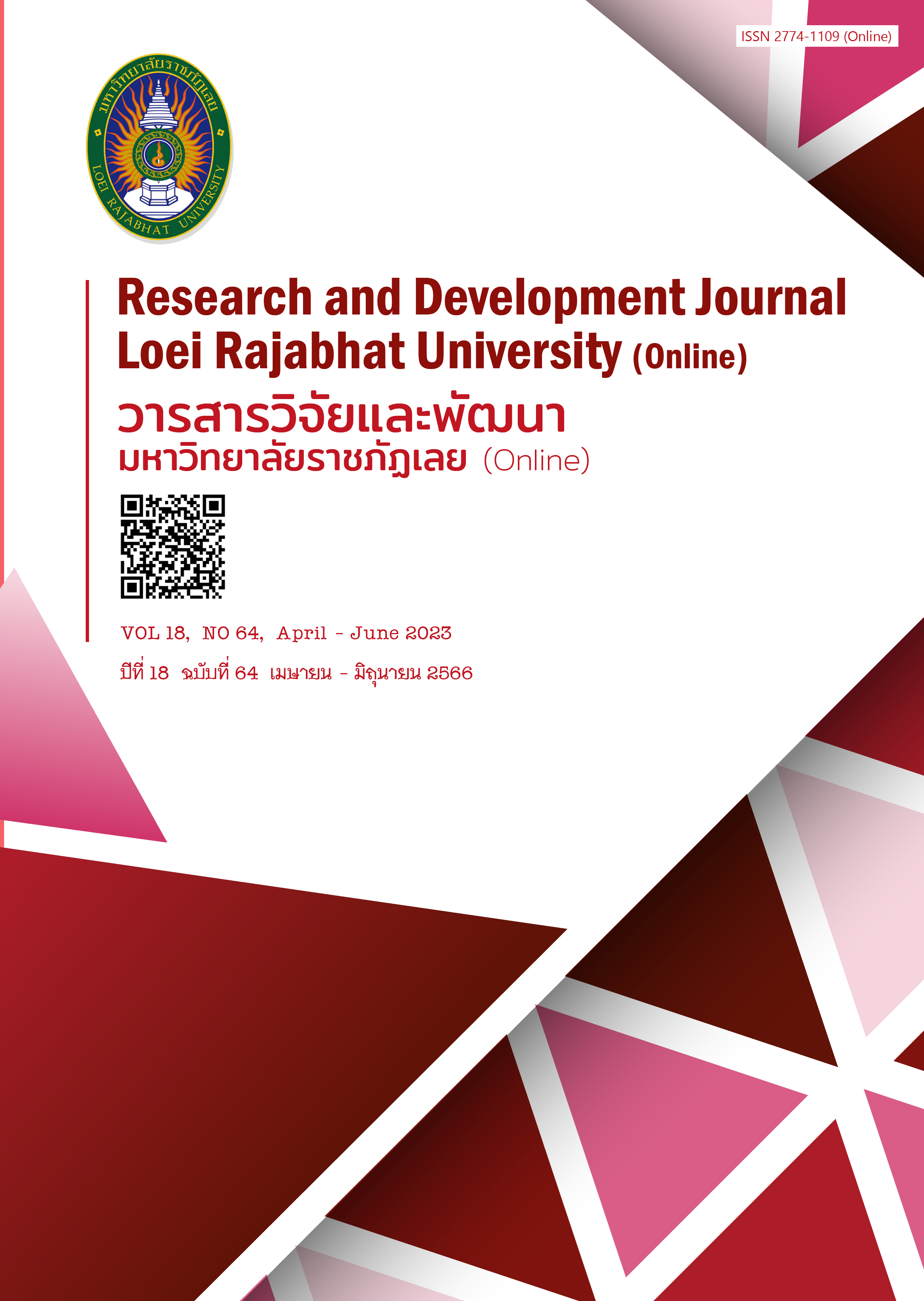The Applied of Geo-Informatics Technology for Contribute Community-based Tourism, Bueng Kan Province
Keywords:
geo-informatics, geography, community based tourism, Bueng KanAbstract
This study aimed to 1) to use geography tools and geoinformatics to support the community-based tourism in the study area and 2) to transfer knowledge and geoinformatics skills to contribute the community-based tourism to the community representatives. The study area comprised of 5 communities in Bueng Kan province, Thailand, and the main implementation was the participation of 3 sectors: the researchers, the related government sectors, the community representatives through an action plan and group discussions. The result was divided into 2 parts which were 1) creating communities’ spatial data sets by using the geoinformatics tools for the area survey and making community maps for decision support, and 2) transferring knowledge to the communities through the specifically selected community representatives based on the innovation disseminated theory through 3 knowledge transferring activities and assessed by the community-based tourism specialists and the related government sectors in the province. The final output of this study were a spatial data online database, the community maps for decision support for developing the community-based tourism and the community representatives who passed the training would have skills in using geographic tools and geoinformatics for the community-based tourism further development.
References
กฤษณะ ปินะพัง. (2555). กระบวนการวางแผนแบบมีส่วนร่วมในการพัฒนาคุณภาพที่อยู่อาศัยสู่การจัดตั้งเชิงองค์กร: กรณีศึกษาเมืองศรีสะเกษ. ในคณะสถาปัตยกรรมศาสตร์และการผังเมือง มหาวิทยาลัยธรรมศาสตร์, BERAC 3, 2012 (น. 49-57). Built Environment Research Associates Conference 2012, ปทุมธานี.
คณะกรรมการนโยบายการท่องเที่ยวแห่งชาติ. (ม.ป.ป). แผนพัฒนาการท่องเที่ยวแห่งชาติ ฉบับที่ 2 (พ.ศ. 2560-2564). กรุงเทพฯ: สำนักงานกิจการโรงพิมพ์องค์การสงเคราะห์ทหารผ่านศึก.
ณรงค์ พลีรักษ์. (2556). ระบบสารสนเทศทางภูมิศาสตร์เพื่อการจัดการการท่องเที่ยวชุมชนในจังหวัดชลบุรี. วารสารวิจัยและพัฒนา มจธ., 36(2), 235 – 248.
ทานตะวัน อินทร์จันทร์. (2546). การมีส่วนร่วมของคณะกรรมการชุมชนในการพัฒนาชุมชนย่อยในเขตเทศบาลเมืองลำพูน (การค้นคว้าอิสระปริญญามหาบัณฑิต). มหาวิทยาลัยเชียงใหม่, เชียงใหม่.
พระครูวีรศาสน์ประดิษฐ์, พระฐนกร กิตติธโร และ ศักดิ์ดา หอมหวน. (2562). การพัฒนาระบบภูมิสารสนเทศศาสตร์เพื่อการจัดการแหล่งท่องเที่ยวในจังหวัดอุตรดิตถ์. วารสารศิลปะศาสตร์ราชมงคลสุวรรณภูมิ, 1(3), 267-282.
ศราวุธ พงษ์ลี้รัตน์. (2556). เทคโนโลยีภูมิสารสนเทศเพื่อการท่องเที่ยวเชิงอนุรักษ์: แบบจำลองหมู่บ้านแม่กลางหลวง. ในการประชุมวิชาการมหาวิทยาลัยเทคโนโลยีราชมงคล ครั้งที่ 5 “การพัฒนาเทคโนโลยีและนวัตกรรมเพื่อความยั่งยืน” ระหว่างวันที่ 15-16 กรกฎาคม 2556 ณ ศูนย์ประชุมบางกอกคอนเวนชั่นเซ็นเตอร์ชั้น 22 เซ็นทรัลเวิลด์, กรุงเทพฯ:
สถาบันการท่องเที่ยวโดยชุมชน. (ม.ป.ป). คู่มือหลักสูตรการจัดกิจกรรมการพัฒนาผู้นำการท่องเที่ยวโดยชุมชน. กรุงเทพฯ: สถาบันการท่องเที่ยวโดยชุมชน.
สำนักงานจังหวัดบึงกาฬ. (ม.ป.ป). แผนพัฒนาจังหวัด 4 ปี (พ.ศ. 2557-2560). ค้นเมื่อ 30 มิถุนายน 2561, จาก http://www.oic.go.th/FILEWEB.
อารยา เกียรติก้อง, กมลศักดิ์ วงศ์ศรีแก้ว และ ปิยวัฒน์ เกียรติก้อง (2560). การประยุกต์ใช้เทคโนโลยีภูมิสารสนเทศ เพื่อสนับสนุนการจัดการท่องเที่ยว จังหวัดสุพรรณบุรี (รายงานการวิจัย). กรุงเทพฯ: มหาวิทยาลัยราชภัฏธนบุรี.
Rogers, E. M. (1983). Diffusion of innovations, (3rded), New York: The Free Press.
Rogers, E. M. (2003). Diffusion of innovations, (5th ed.), New York: The Free Press.
Downloads
Published
How to Cite
Issue
Section
License
Copyright (c) 2023 Research and Development Journal, Loei Rajabhat University

This work is licensed under a Creative Commons Attribution-NonCommercial-NoDerivatives 4.0 International License.
ข้อความที่ปรากฎในวารสารฉบับนี้เป็นความคิดเห็นของผู้เขียนแต่ละท่าน สถาบันวิจัยและพัฒนา มหาวิทยาลัยราชภัฏเลย และกองบรรณาธิการ ไม่จำเป็นต้องเห็นด้วยและไม่มีส่วนรับผิดชอบใดๆ
สถาบันวิจัยและพัฒนา มหาวิทยาลัยราชภัฏเลย ขอให้ผู้อ่านอ้างอิงในกรณีที่ท่านคัดลอกเนื้อหาบทความในวารสารฉบับนี้



